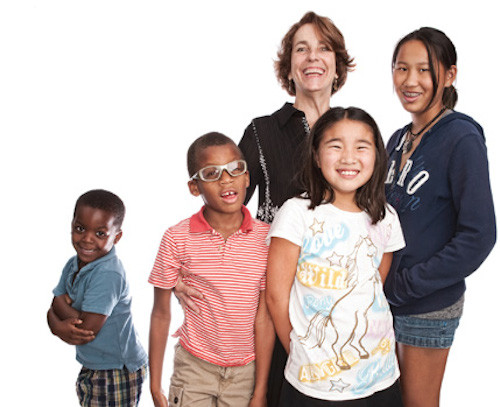Suzanne Bryant’s law career has always been about fighting for the voiceless.
After graduating from Duke University Law School, Bryant and longtime partner Sarah Goodfriend settled down in Washington D.C. where Bryant represented abused and neglected children. She became one of the founders of the national LGBT Bar Association, a gay lawyers group that formed to educate lawyers and law students about LGBT issues and she helped found Gay- LAW, a similar bar association for the Washington area.
But the big focus of Bryant’s career didn’t begin until she and Goodfriend moved to Austin in 1992. What Bryant quickly realized when she arrived here was that no attorneys were focusing solely on the gay community. “The feedback that I got was that gay issues just weren’t talked about, so I hit the ground saying, ‘this is going to be my focus, this is what I do.’”
It was a risk, even in the liberal capital of conservative Texas. But Bryant was undaunted. She centered her practice around gay family law, representing gay men and women in various cases, including divorces from straight marriages. A conversation with a newly-elected judge in the mid-1990s helped spark Bryant’s interest in second-parent adoptions, which allow an individual to adopt their partner’s biological or adopted children, thereby giving the child two legal parents. In recent years, second-parent adoptions have become more common in gay families as a way of protecting both parents’ rights, and in turn, the child’s well-being. For more than a decade, second-parent adoptions have dominated Bryant’s practice and in recent years she’s fielding up to 50 cases a year. Her clients come from El Paso, Amarillo and all corners of Texas seeking her help in making their families legally whole.
“I wouldn’t be a good lawyer if I didn’t believe in what I’m doing,” says Bryant. “I believe this is incredibly important.”
While the frequency of second-parent adoptions has increased, there is no legislation in place to guarantee them in Texas. Instead, it’s left up to individual judges to decide whether or not to grant them. That’s where Bryant comes in. Certain counties, including Travis, al low the petitioner to bring their case to a specific judge. And because of her experience, Bryant knows which judges are more sympathetic to gay families and which to avoid.
Despite the increased frequency and talk around second-parent adoptions, some parents around the state are still unaware the practice exists. And even fewer are aware that there’s a tax credit that parents can use to pay for virtually the entire thing, says Bryant.
“I really want to spread the word, to make sure every gay and lesbian family in this state knows this option is there,” she says.
In terms of LGBT family law, there’s still plenty of work to do. Right now in Texas, a child’s birth certificate can only have one father and one mother listed. Bryant, Equality Texas and others are lobbying the legislature to pass a law overturning that rule, which she says is a hindrance to gay families. But those kinds of proactive lobbying efforts are a departure from the battles the LGBT community was waging just a few years ago when lawmakers were weighing a measure that would have outlawed second-parent adoptions.
Bryant, who is raising two daughters of her own with Goodfriend, says she enjoys getting to know each of her clients and their unique story. But her passion for helping gay families is about something greater than the individuals themselves.
“The world is not going to change just by making laws or creating organizations, but by a cultural shift,” she says. “Organizations go away, laws can be overturned, but when we have our families in the world – when gay men and lesbians are presidents of the PTA, hearts and minds change and we can never go back.”



































